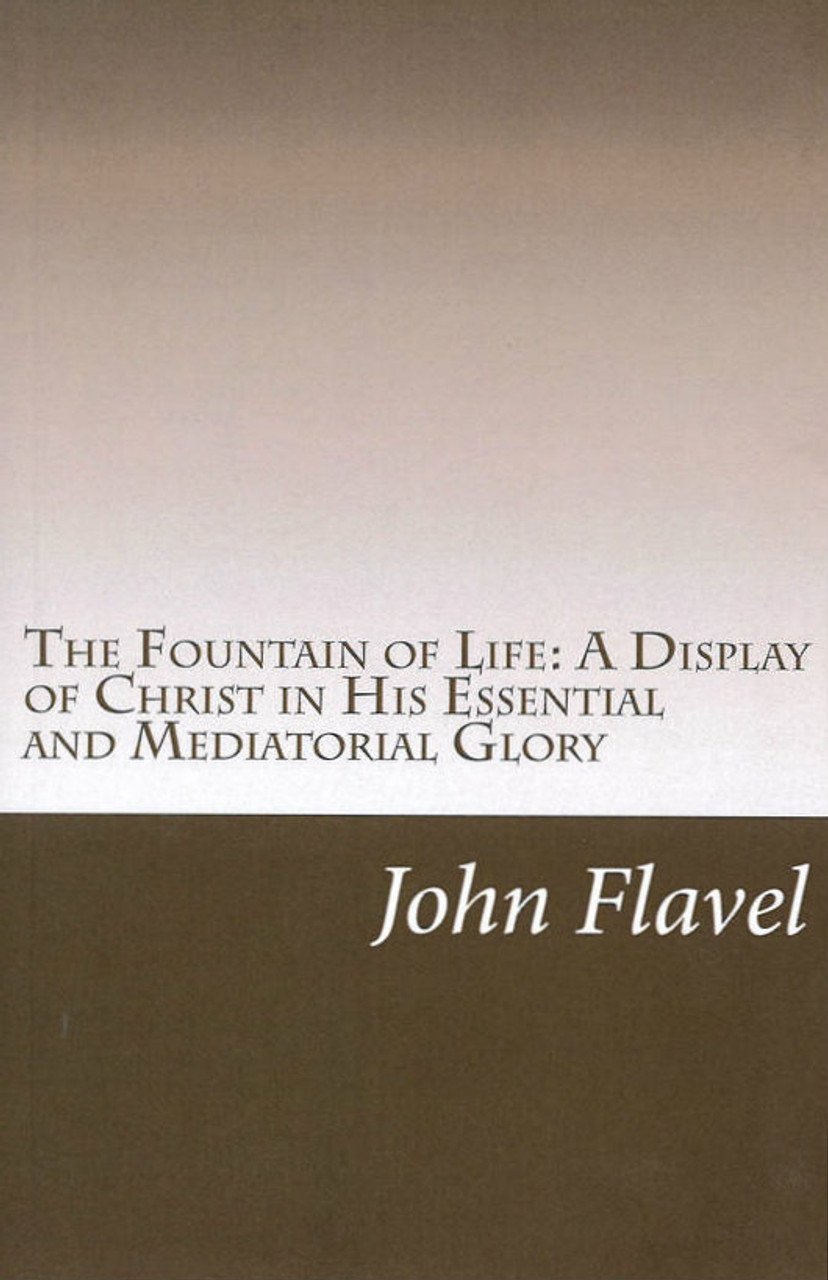The Transcendent Excellency of Jesus Christ
Posted by J. Stephen Yuille on 23rd Jun 2021
John Flavel (1630–1691) was a prolific preacher and writer whose influence extended well beyond his local congregation. In the words of one biographer, he was “famous among the writers of his age,” obtaining “more disciples” than John Owen or Richard Baxter. Thankfully, Flavel gave a considerable amount of his time to writing and publishing his sermons. These were compiled after his death, and his complete works were printed five times in the eighteenth- century and multiple times in the nineteenth and twentieth centuries. It has been observed that “there are few writers of a more experimental, affectionate, practical, popular, and edifying character than Flavel.”
At times Flavel is polemical and controversial in his writings. More often than not, however, he is doctrinal and pastoral. This emphasis is seen in his twofold approach to preaching and writing: exposition and application. Flavel repeatedly follows this simple method, deriving his doctrines from Scripture and then encouraging his readers to pursue a heartfelt application of those doctrines to all of life. This affective theology places Flavel firmly within the realm of English Puritanism—what J. I. Packer calls “a spiritual movement, passionately concerned with God and godliness.”[1]
“there are few writers of a more experimental, affectionate, practical, popular, and edifying character than Flavel.”
Of all his works, Flavel’s The Fountain of Life stands out from the rest. It is one of the most extensive studies on the person and work of Christ that was produced in seventeenth-century England. Flavel’s handling of this great subject is informed by Scripture and faithful to the church's historic creeds. He is polemical when necessary and painstakingly detailed when he believes the truth is at stake. That said, his work does not fall within the traditional boundaries of systematic theology; rather, it is an act of adoration, constituting a series of meditations upon “the transcendent excellency of Jesus Christ.” Above all else, he wants us to “behold” Christ’s beauty, that we might enjoy communion with the living God.
He wants us to “behold” Christ’s beauty, that we might enjoy communion with the living God.
Christ’s loveliness in His person, works, and offices causes the believer to cry with delight: “This is my beloved, and this is my friend, O daughters of Jerusalem” (Song 5:16). Flavel defines such spiritual delight as “the complacency and well-pleasedness of a renewed heart, in conversing with God, and the things of God, resulting from the agreeableness of them to the spiritual temper of his mind.” He breaks this down into four components. (1) The “nature” of delight is the “complacency, rest, and satisfaction of the mind in God and spiritual things.” (2) The “object” of delight is “God himself, and the things which relate to him.” (3) The “subject” of delight is “a renewed heart.” (4) The “principle” of delight is “the agreeableness of spiritual things to the temper and frame of a renewed mind.” All told, the soul’s “spiritual senses” are satisfied in God.[2]
The soul’s “spiritual senses” are satisfied in God.
Flavel was convinced that there are times when we feel God’s presence – that is, when He awakens those graces (e.g., faith, hope, love, joy) which He implanted in us at regeneration. By means of His Word and Spirit, He stirs these graces so that we know experientially that He’s near. For Flavel, this is “a felt presence of God which no words can make another to understand.” When we “feel that fountain flowing abundantly into the dry pits, the heart fills apace, and the empty thoughts swell with a fullness of spiritual things which strive for vent.”
The chief means by which we enjoy this communion is the knowledge of Christ. For this reason, Flavel declares, “Look on Him in what respect or particular you will; cast your eye upon this lovely object, and view Him in anyway; turn Him in your serious thoughts which way you will; consider His person, His offices, His works, or any other thing belonging to Him; you will find Him altogether lovely.”
The chief means by which we enjoy this communion is the knowledge of Christ.
It is this display of Christ’s loveliness that awaits the reader in Flavel’s The Fountain Life. Desiring to make it accessible and profitable to a wide readership, Reformation Heritage Books has edited the original work and published it in two volumes: Christ Humbled yet Exalted and Christ and His Threefold Office. Read them thoughtfully, devotionally, and affectively, bearing in mind Flavel’s own counsel: “To your work, Christian, to your work … Whatever communion God and the soul maintains, it is in this way. Count all, therefore, but dross in comparison to that excellency which is the knowledge of Jesus Christ.”

Christ’s glory is essential.
John Flavel’s book is available from Reformation Heritage Books.
[1] J. I. Packer, A Quest for Godliness: The Puritan Vision of the Christian Life (Wheaton, Ill.: Crossway Books, 1990), 28.
[2] J. Stephen Yuille. The Inner Sanctum of Puritan Piety: John Flavel's Doctrine of Mystical Union with Christ. Reformation Heritage Books.
